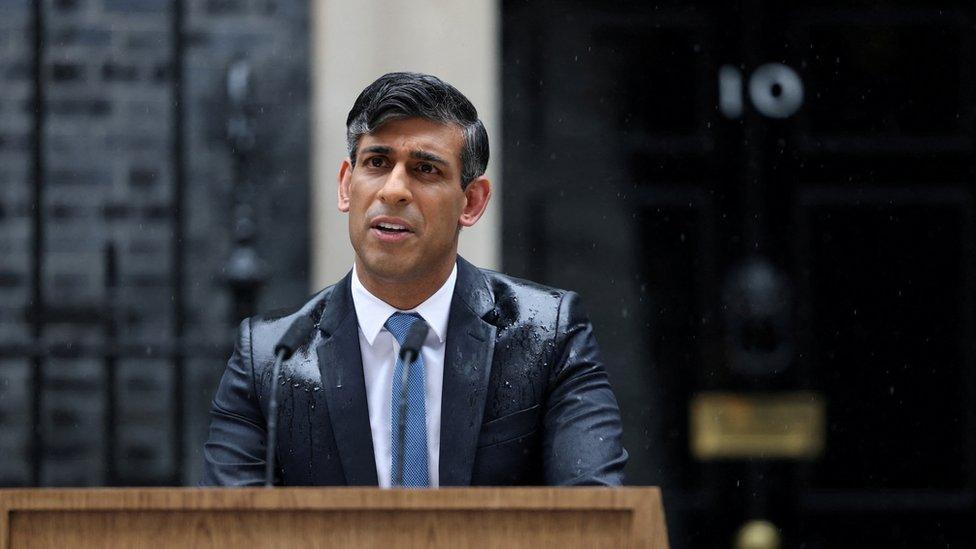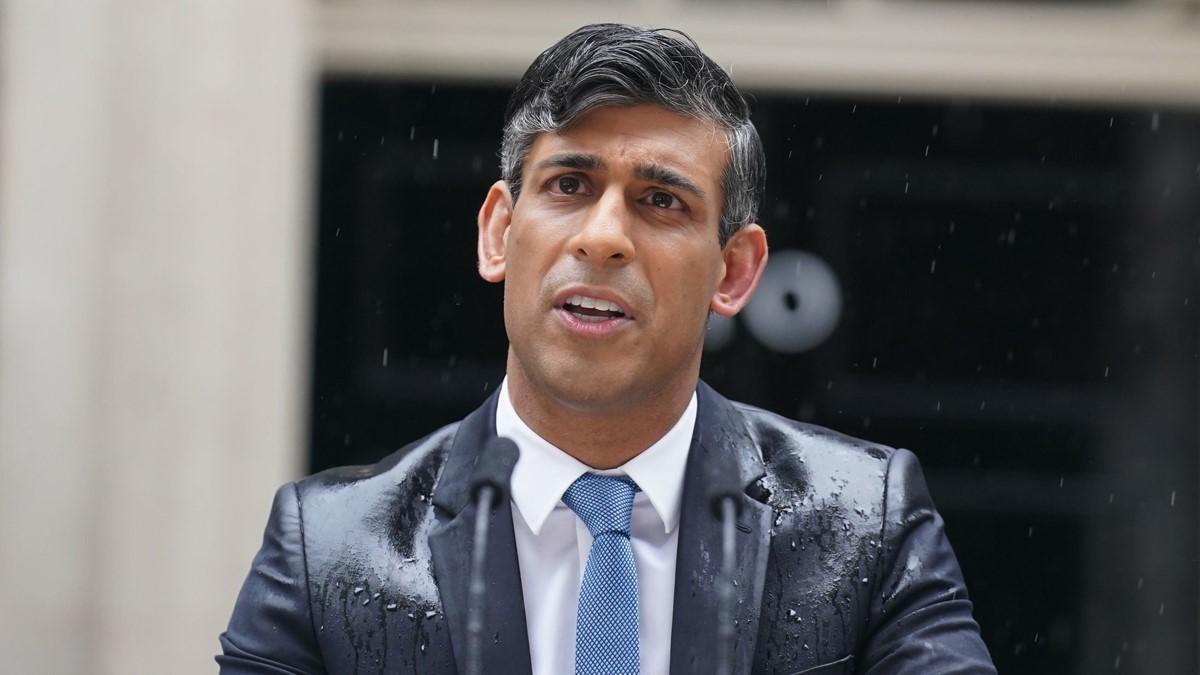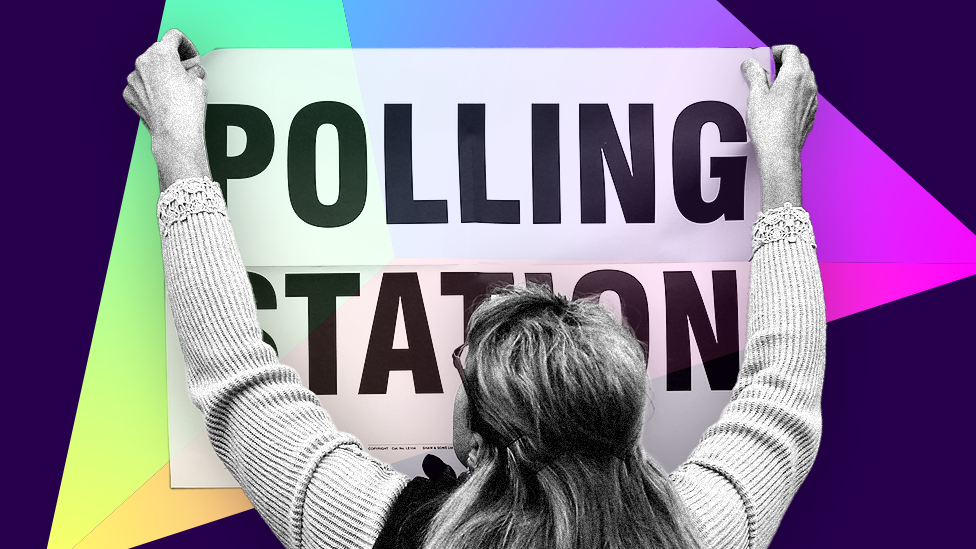Chris Mason: Why did Sunak decide to call summer election?
- Published
- comments

The general election is on - it will soon be over to you.
Power will soon drain from Westminster, and drain from those who currently hold it.
Politicians, and their future - but far more importantly the country's direction - will lie in your hands.
The prime minister announced the date outside Number 10, with the rain pouring down and music blasting from just outside the Downing Street gates.
The song? An old hit from the 1990s, D:Ream's Things Can Only Get Better which you might remember from Tony Blair's era.
For weeks there had been a growing expectation the election would be held in the autumn, giving the prime minister at least two years in office and giving the economic outlook a greater opportunity to improve.
A very senior government figure told me just days ago "there is no reason to be getting excited" when I was part of a conversation about a summer election.
I spent more than an hour in conversation with another very senior Conservative just yesterday where the whole thing was framed around a very long campaign that might still be rumbling when the pumpkins were out and the sparklers were sparkling.
But not everybody is in the loop on something like this.
Decisions can be on a knife edge - and there have been those pushing Rishi Sunak to go sooner, Deputy Prime Minister Oliver Dowden among them.
Those making that argument felt that things might not improve much and that the perceived desire of the electorate to be given a say soon might risk making any Conservative defeat worse if the appointment with voters was pushed back.
Inflation fall
In other words, do it now or it could get worse.
The prime minister can also point to at least some of his objectives being fulfilled, or seemingly en route to being fulfilled.
Today's inflation number can be chalked up as a success.
Of course it's not purely down to the actions of the government.
But governments get blamed when it's sky high, so it's reasonable to expect they will attempt to siphon off some credit when it falls - and it has.
The wider economic picture appears a little brighter too.
Then there is the plan to send some asylum seekers to Rwanda.
It hasn't happened yet but it would appear flights could be imminent, perhaps even during the election campaign, although the claim that it will act as a deterrent will not be tested before polling day.
And so the campaign begins.
The Conservatives will say over and over again: be careful what you wish for. Labour and others will say over and over again it is time for change.
The outcome will be quite something, whatever happens.
Either the opinion polls are broadly right and the party of government will change, or they are wrong and it will be one of the biggest upsets in recent years.
Related topics
- Published22 May 2024

- Published3 July 2024

- Published4 July 2024
